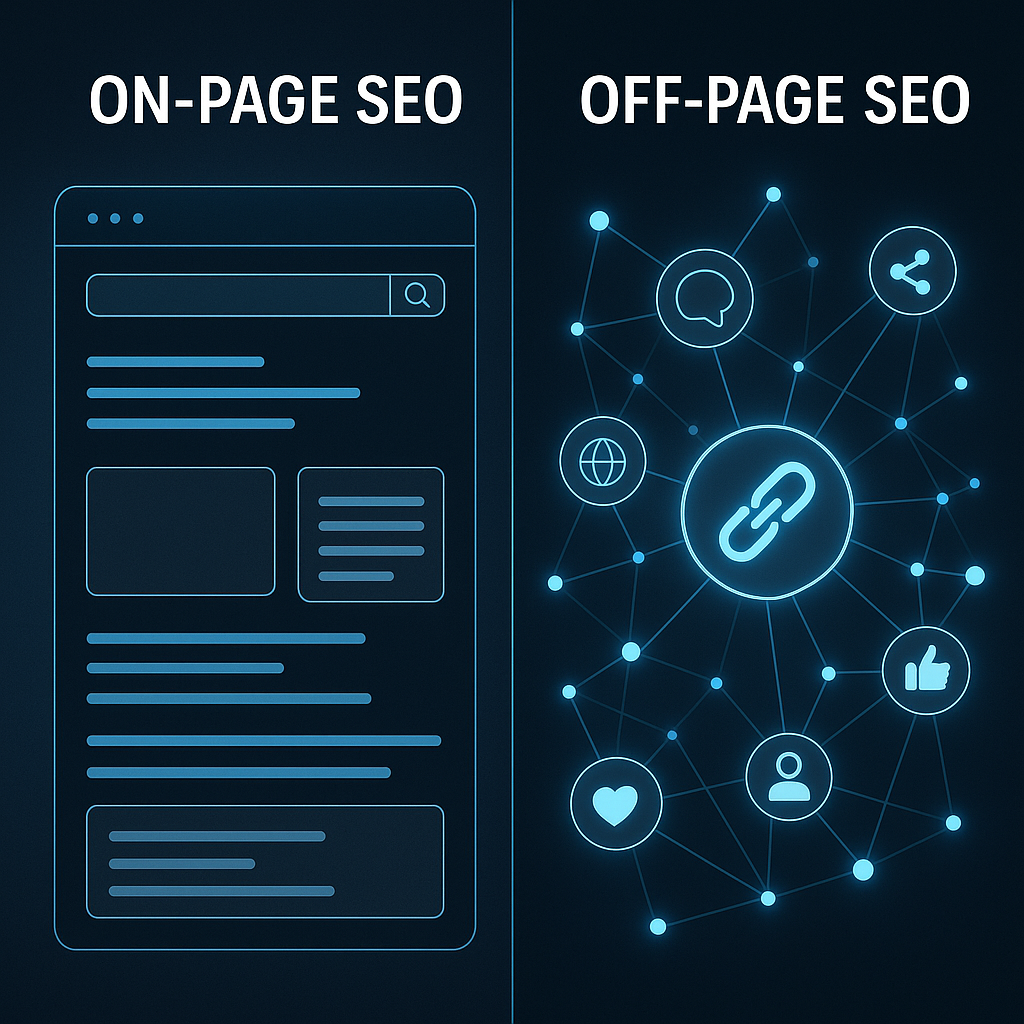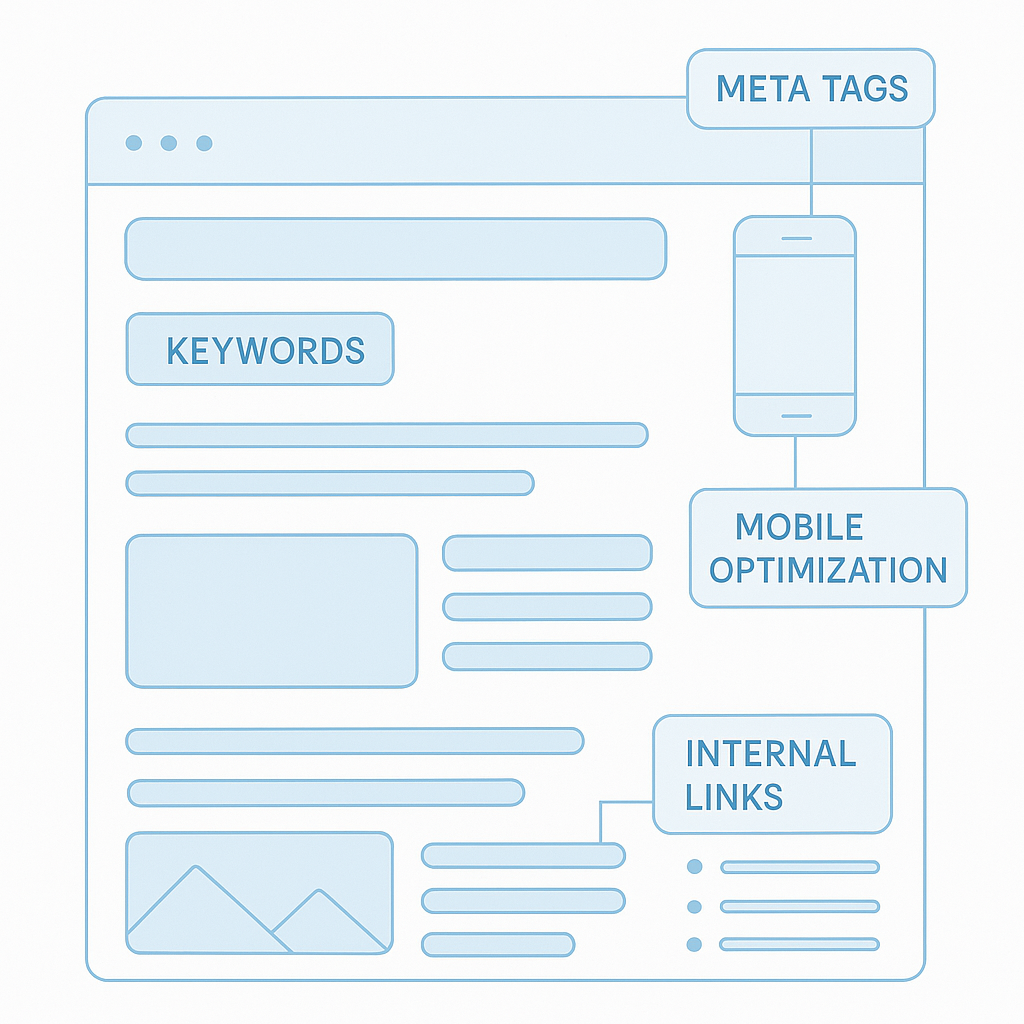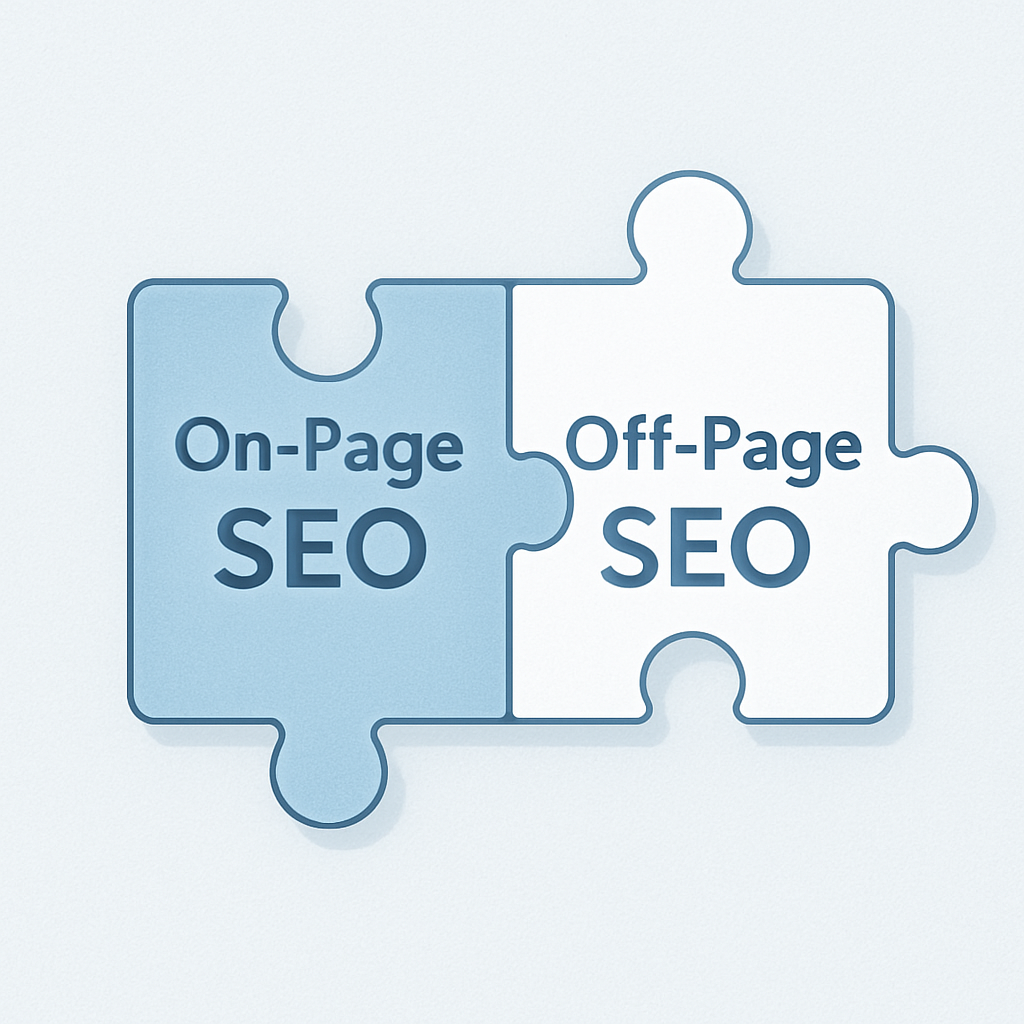If you’ve ever found yourself in the SEO maze, prioritizing your site’s structure over links like buried treasure, you’re not alone. This is a common quandary among webmasters. Some argue that you must first build your site and then structure it well enough for search engines to understand that you’re all good. Others say that you can do all that but still need to get quality links back to your site if you ever want to be seen. So what is it: precious links or precious structure?

Understanding the Basics of SEO
What Is SEO Anyway?
SEO (Search Engine Optimization) is like the secret sauce that helps websites climb search engine rankings. It’s how Google decides who shows up first when someone types “best pizza near me” — and who gets buried on page 10.
The Two Pillars of SEO
There are two primary divisions: on-page SEO and off-page SEO. Consider on-page SEO to be equivalent to cleaning up your room and off-page SEO to be like establishing a good relationship with your neighbors. Both are important, but they play their parts in different ways. That is what makes it interesting.
Diving Into On-Page SEO

What Exactly Is On-Page SEO?
Everything you can control on your website — content, HTML tags, design, speed, structure — falls under the umbrella of on-page SEO. Think of your website as a digital storefront. If it looks like a mess, no one’s sticking around.
Keywords: Still the Backbone
Indeed, they continue to hold significance. Google’s current level of intelligence surpassed anything that came before it, but it knows to look for keywords when trying to determine the theme of your content. These should be included as part of a completely natural writing style. Never force them in.
Meta Tags and Descriptions
Even though title tags and meta descriptions may appear to be insignificant, they are crucial parts of on-page SEO. They indicate to search engines and users precisely what to anticipate. If you don’t have them, you might as well be waving to Google from behind a tree.
Content Quality and Relevance
By 2025, content that is not straightforward and to the point will not be acceptable. Google insists on quick, precise, and useful replies to its users’ inquiries. Therefore, if you want to be successful in the not-so-distant future, it is imperative that you not only write but also think in a manner that is Google-friendly. And what is original and also helpful is your clear lane to a not-so-distant future in which you can win.
Internal Linking Structures
Connecting your pages? Big deal. It’s like giving Google a roadmap of your site. Plus, it ensures users keep bouncing around (in a good way).
Mobile-Friendliness and Page Speed
In a world where people are constantly on their phones, your website needs to be top-notch on mobile. And if your site has slow-loading pages? They’ll sink your SEO.
Exploring Off-Page SEO

What Is Off-Page SEO?
Everything that takes place outside your site but affects your search ranking relates to off-page SEO. That mainly involves building authority and credibility through external sources.
Backlinks: The Currency of Credibility
Backlinks are essentially online votes of confidence. When many quality sites link to you, Google tends to trust that you are indeed a trustworthy site.
Social Signals and Brand Mentions
Although they’re not direct ranking signals, social shares and brand buzz count. They deliver visitors and send signals of authority.
Domain Authority and Trust Building
Earning Google’s trust takes time and consistency. It’s kind of like building street cred. You need the right connections and a good reputation.
How Search Engines Are Evolving in 2025
The Rise of AI-Powered Search
Now, search engines grasp context, tone, and intent more clearly than ever. AI is delving deep into the quality of content and the experience of users.
E-E-A-T and User Intent
Google’s E-E-A-T (Experience, Expertise, Authoritativeness, Trustworthiness) and satisfying search intent are the non-negotiables for ranking now. These two together create a recipe for ranking.
On-Page SEO: Pros and Cons
Pros:
- Complete authority over optimization.
- Direct effect on end-user experience.
- Absolutely crucial for meeting search intent.
Cons:
- Laborious, ongoing maintenance.
- Necessary regular updates to keep pace with search algorithm changes.
Off-Page SEO: Pros and Cons
Advantages:
- Establishes trust with your audience over time.
- Increases your reach far beyond just search engines.
- Enhances your overall website authority.
Disadvantages:
- Calls for substantial effort in terms of outreach and interaction.
- Typically takes longer compared to other methods to yield noticeable outcomes.
- Can backfire if you end up with dubious links pointed at your site.
Head-to-Head: On-Page vs. Off-Page SEO
Which Impacts Rankings More Today?
To be completely forthright, it’s both. However, on-page SEO frequently delivers speedier and more quantifiable outcomes, notably for nascent websites. You necessitate both high-grade content alongside top-notch technical capabilities to secure a presence on the SERPs.
Which One Offers Long-Term Value?
Off-page SEO is excellent here. Just one high-quality backlink from a trusted domain can elevate your rankings for months, even years.
The Ideal SEO Strategy for 2025

Integrating Both for Maximum Impact
The actual power move? Don’t pick one. Meld the two. Hit your content, structure, and UX — then make some noise. SEO 2025 is a sum of parts: quality + reputation.
Seeking a more intelligent manner to oversee your SEO in 2025? Solutions such as SEOSets provide a way to gather all the components — dissecting on-page particulars, scrutinizing links, and even conducting performance audits — in one upstairs room, where every SEO tool sits, close at hand. If you’re trying to enhance internal construction or keep a careful watch on your backlink profile, SEOSets serves as a consolidated command platform to carry out those tasks.
Common Mistakes to Avoid
- Failing to optimize for mobile.
- Going after poor-quality backlinks.
- Creating content for search engine bots rather than for people.
- Neglecting audits and updates.
Final Thoughts
So, which is more important: on-page or off-page SEO? Here’s the truth — it’s like asking whether the engine or the fuel matters more in a car. Without one, the other flops.
In 2025, smart SEOs are playing both sides: crafting excellent content and building genuine authority across the web. Want to climb the SERPs and stay there? Optimize your site and your presence.
FAQs
1. Is on-page SEO enough to ensure high rankings in 2025?
Not really. On-page SEO is critical, but it only accounts for some of the signals that determine how well content ranks. Off-page SEO (like backlinks and brand mentions) also matters a lot.
2. What is the duration to observe results from off-page SEO?
A few months — in case you’re wondering. Quality backlinks take their sweet time to work their magic.
3. Do social media shares influence SEO rankings?
Not in a direct sense, but they do increase both traffic and visibility, both of which can lead to backlinks, and that’s a crucial indirect benefit.
4. What is easier for novices: on-page or off-page SEO?
On-page SEO. You control everything, and you see results much quicker.
5. Is it safe to outsource off-page SEO?
Yes, it is safe, but be discerning. Shun link-building services that operate in a spammy manner. Instead, hire reputable SEO agencies or professionals whose meticulous work centers on quality and relevance.

